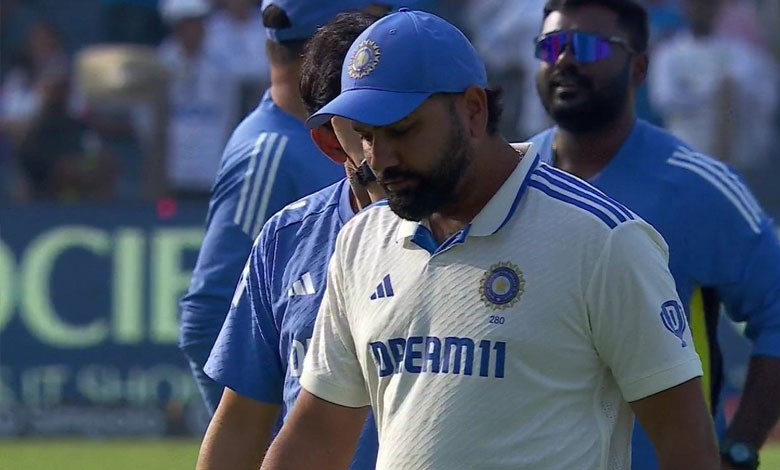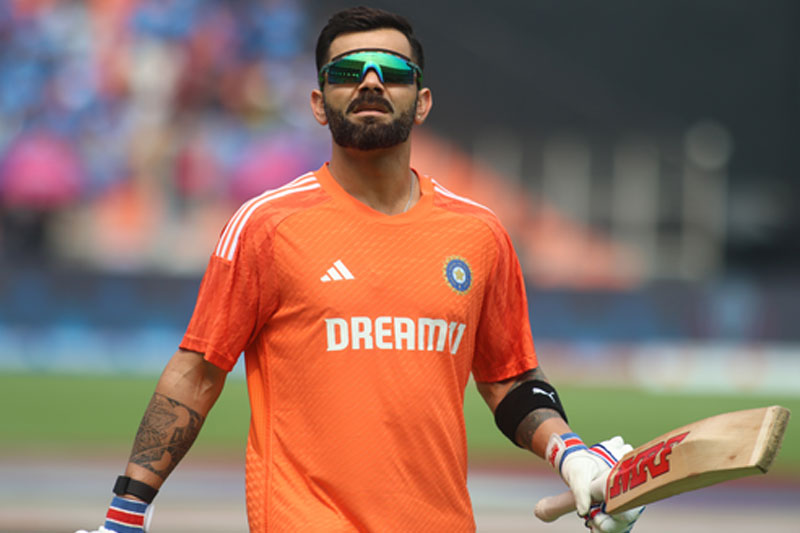BCCI Orders Team India to Travel Without Wives and Kids: Is This a Reaction to BGT Loss?
The BCCI implements strict new travel rules for Team India, banning wives and kids on overseas tours. Is this decision a direct consequence of their recent Border-Gavaskar Trophy loss? Find out the details.

The BCCI implements strict new travel rules for Team India, banning wives and kids on overseas tours. Is this decision a direct consequence of their recent Border-Gavaskar Trophy loss? Find out the details.
India’s disappointing results in the recent Test series against New Zealand and Australia, which led to their exclusion from the World Test Championship (WTC) final, have caused a major shakeup in the Board of Control for Cricket in India (BCCI). The BCCI has taken a serious stance on the defeats, with new rules being implemented to curb what they see as distractions during overseas tours.
Table of Contents
Families’ Stay Cut Short: New Restrictions on Player Accompaniments
One of the key changes will affect the presence of players’ families during overseas tours. During the Covid-19 pandemic, the BCCI relaxed its rules and allowed players to have their spouses and children travel with them for the entire duration of tours. However, in the wake of India’s poor performances in the last two Test series, the board has now decided to revert to pre-pandemic rules.
For tours lasting longer than 45 days, players will now only be allowed to have their families with them for a maximum of 14 days. For shorter tours, the duration of the stay will be limited to one week. This decision follows concerns raised over the level of distractions caused by families staying with players for extended periods, particularly during the recent tour of Australia, where multiple players had their families around for the entire length of the tour.
Team Travel and Baggage Policies Tightened
The BCCI has also imposed stricter regulations on player travel and baggage allowances. In recent times, it had become common for prominent players to travel separately from the rest of the squad, opting to take private transport or move from venue to venue independently. The BCCI has made it clear that going forward, all squad members will be required to travel together on the team bus, with no exceptions.
Also Read: Bumrah’s Fitness Woes: Can He Handle the Pressure of Leading India in Test Cricket?
Furthermore, the board is now clamping down on players’ baggage allowances, with stricter rules regarding the weight and size of luggage players can bring during overseas tours. These changes are part of the BCCI’s broader effort to streamline team operations and create a more focused environment for players.
Personal Staff of Players Under Scrutiny
Another significant move by the BCCI has been to target personal staff members who travel with players during tours. Gautam Gambhir’s personal manager was present during the Border-Gavaskar Trophy in Australia, which raised eyebrows. From now on, players’ personal staff will no longer be allowed to travel with the team, nor will they have access to team transport or accommodation.

Team Dynamics: A Lack of Unity?
The BCCI’s intervention stems from concerns over team dynamics and a sense of fragmentation within the squad. Reports suggested that during India’s 2020-2021 tour of Australia, players traveled in batches and did not spend much time together off the field. The team’s inability to bond and share meals together outside the stadium has been seen as a possible reason for the team’s underwhelming performances. The BCCI is determined to create a more cohesive unit going forward by ensuring players remain united and focused during overseas tours.
Historical Precedents: Players’ Families and Fan Backlash
Over the years, players’ families have often been blamed during periods of poor performances. In 2007-08, Yuvraj Singh faced criticism during the Australia tour, with some pointing fingers at his relationship with a Bollywood actress as a potential distraction. Similarly, during the 2014 tour of England, Virat Kohli’s form was questioned due to the presence of his girlfriend, Anushka Sharma. Kohli’s struggles were blamed on Sharma’s presence, despite his technical faults being more directly responsible for his poor performances.

The BCCI is hoping these new rules will not only improve team dynamics but also shield players from unnecessary external distractions that may have previously affected their focus and performance.
A New Era for Indian Cricket?
As India looks to rebound from their recent Test series setbacks, the BCCI’s new approach to player behavior and team management is aimed at bringing a fresh sense of discipline and focus. Whether these changes lead to improved performances in upcoming international tours remains to be seen, but it is clear that the board is determined to address any factors it believes could be hindering the team’s success.

